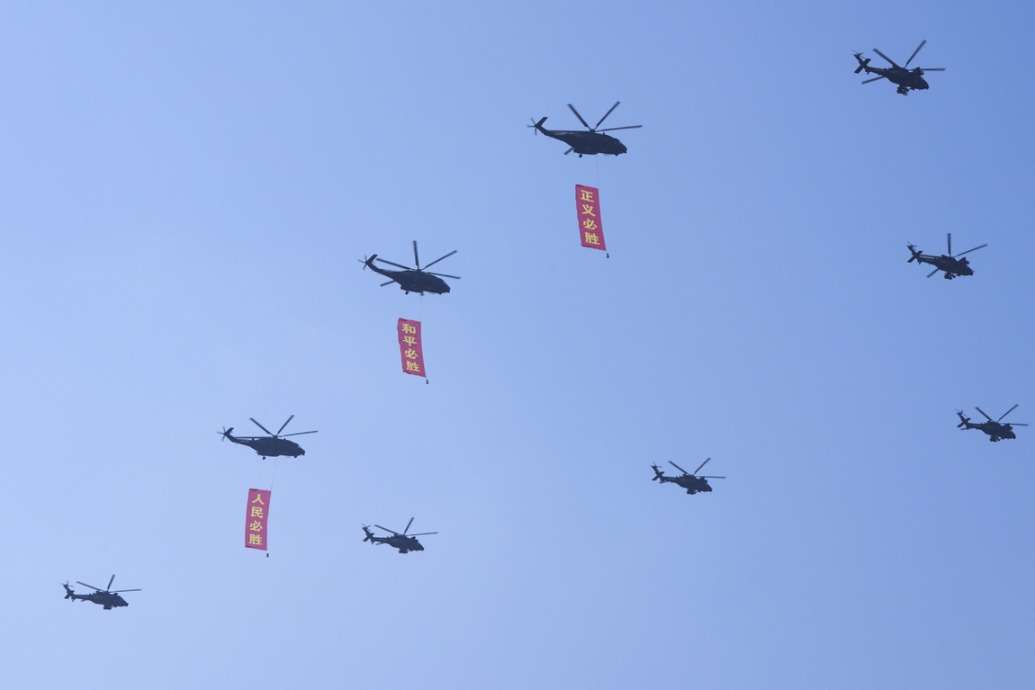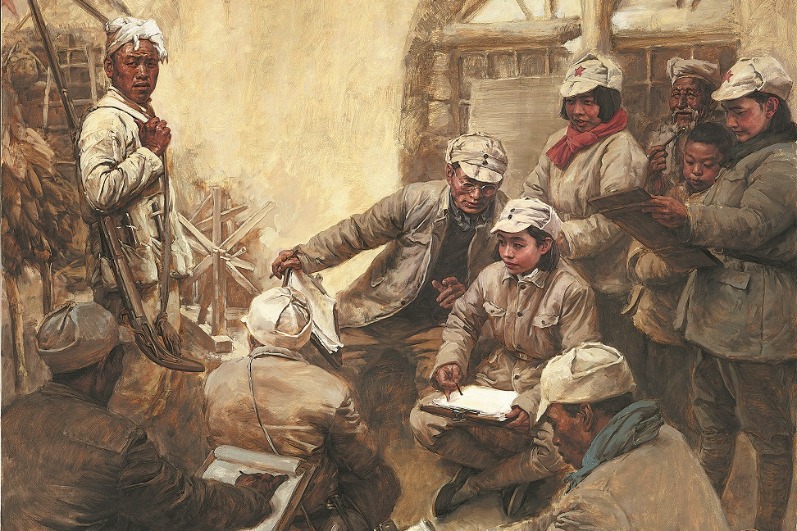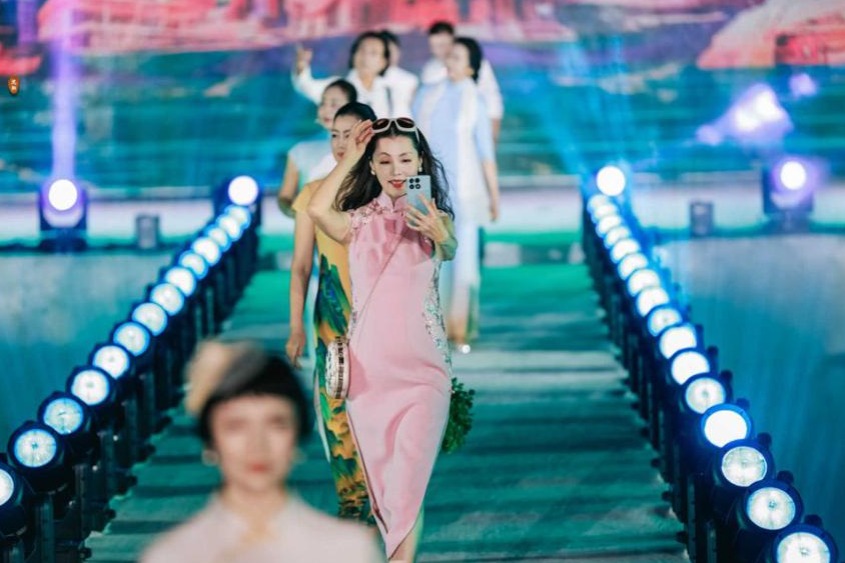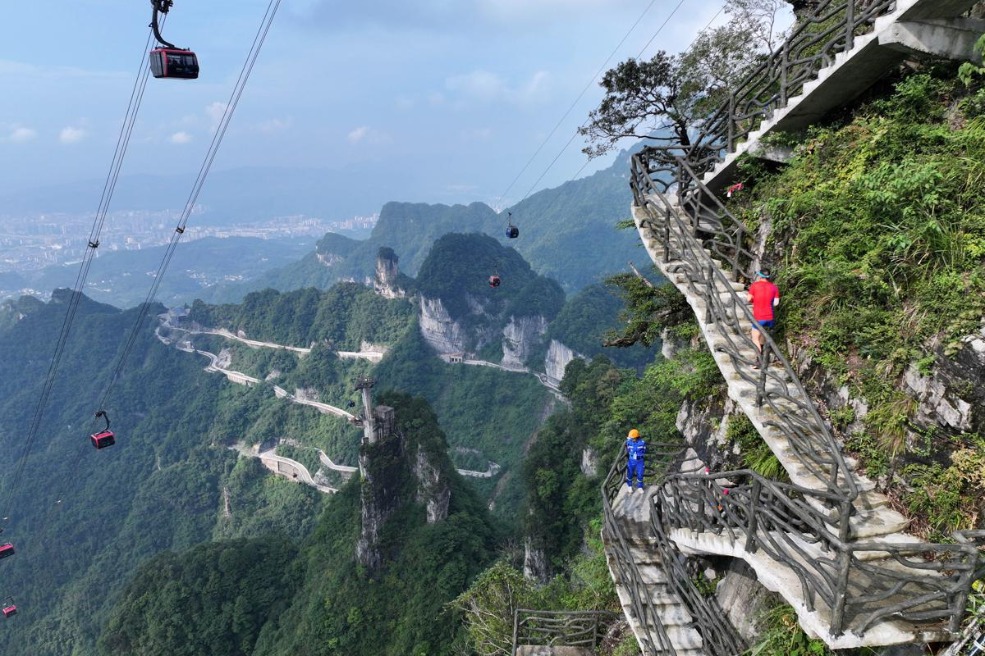Proud of peace, progress
History we share and remember

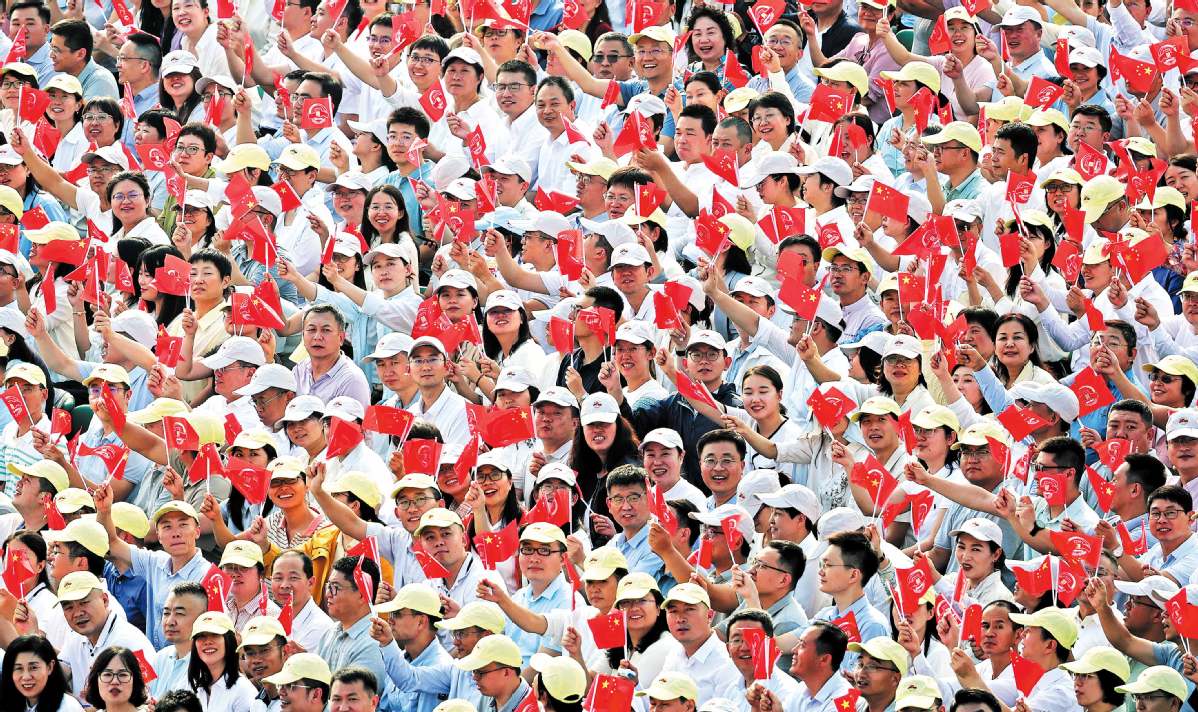
Editor's note: China Daily reporters attended the Victory Day celebration at Tian'anmen Square on Wednesday. As part of the audience, they shared their experiences as witnesses to this historic moment.

As doves of peace soared into the sky, a child's gaze, full of wonder, followed them into the depths beyond the blue.
When the synchronized footsteps of the parade echoed across the square, one could hear one's own heartbeat.
And as veterans of the war saluted the troops passing by, we as spectators felt as if we were witnessing the contrast between the past and present, with the former and current soldiers honoring a shared history.
In that moment, a profound truth became evident: when we gaze into history, history gazes back at us.
Zhang Yungui, a materials scientist from China Iron and Steel Research Institute Group, said that having spent decades working in his field, witnessing previously unseen advanced aircraft fly overhead brought to life the progress made by China's national defense.
When asked which part they anticipated most, many spectators pointed to the equipment formation. Shan Jixiang, former director of the Palace Museum, noted that the display of military hardware strengthened people's sense of national identity.
Why does humanity need rituals? While a military parade aims to shape collective identity, personal interpretations are diverse and dynamic. A teenage guest told me the music was uplifting; a technologist saw the advancement of an era; and a cultural worker perceived the cohesion of shared memory. Here, across ages, nationalities and social backgrounds, we solidify our social bonds by shaping collective memory and emotional resonance. It reflects a universal human need for order, meaning and belonging.
How many full moons can we truly remember in a lifetime? It is not because they are rare, but because we lack sufficient emotional anchors. The way we remember our personal lives relies on peak emotional moments — those intense, affectively charged points in time that are specially consolidated by the brain. Through ritual, we actively create such emotional highs, thereby expanding the perceived density and length of life.
We experience life through these memory nodes. They are like pearls scattered across the timeline of our existence, illuminating the continuous narrative of who "I am". Similarly, how we feel as a nation or identify with a culture depends on shared collective memory. National ceremonies, commemorative events and cultural traditions implant these memory nodes into the spiritual fabric of a people by shaping common emotional experiences, making abstract concepts like "nation" and "culture" tangible and felt — becoming a source of individual identity. By that, we are creating "full moons".
As President Xi Jinping stated, history carries the past and also enlightens the future. On this day, together at Tian'anmen Square, we created new memories, thereby composing tomorrow's history.
"When we gaze into history, history gazes back at us."


















